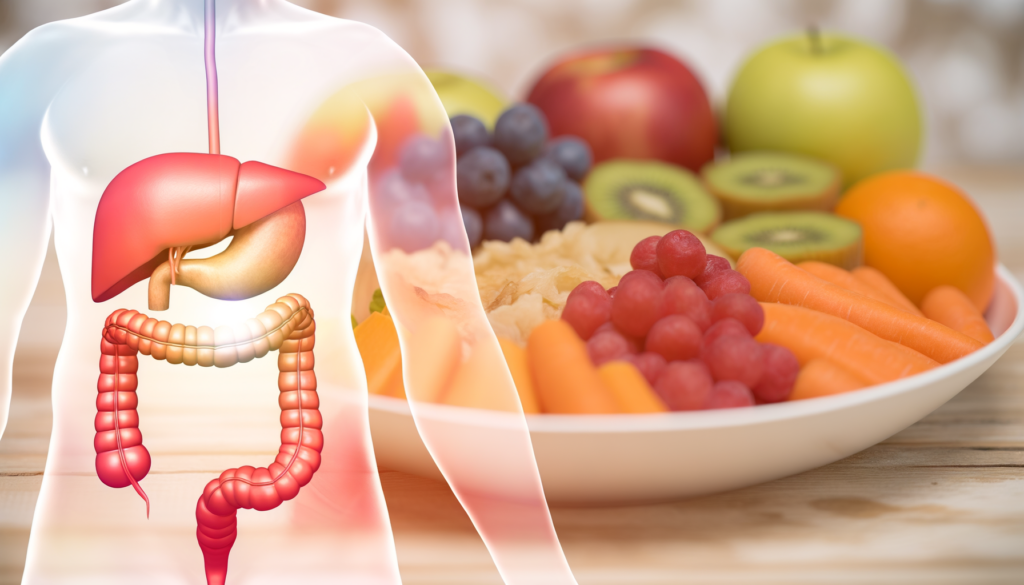Understanding the Interplay Between Calorie Quality and Women’s Hormonal Health
When it comes to women’s health, hormonal balance plays a crucial role in overall well-being. Hormones regulate a wide range of bodily functions, including metabolism, mood, and reproductive health. One of the key factors influencing hormonal balance is the quality of the calories consumed. In this article, we will delve into the impact of calorie quality on women’s hormonal health, exploring how different nutritional components and lifestyle factors can support or disrupt hormone balance at various life stages.
The Role of Macronutrients in Hormone Regulation
A balanced diet rich in the right macronutrients is essential for maintaining hormonal balance. Protein, for instance, is vital for hormone synthesis. Foods high in protein, such as lean meats, fish, and plant-based options like lentils and tofu, provide the amino acids necessary for the production of hormones like insulin, growth hormone, and thyroid hormones.
Healthy fats, found in foods like avocados, nuts, and olive oil, are also crucial. These fats support hormone production and cellular function, helping to regulate hormones such as estrogen and progesterone. Incorporating healthy fats into your diet can improve insulin sensitivity and promote the production of satiety hormones like GLP-1, CCK, and PYY, which are essential for weight management and overall hormonal balance.
The Importance of Fiber in Hormonal Health
Fiber is another critical component of a hormone-friendly diet. High-fiber foods, including fruits, vegetables, whole grains, and legumes, help regulate blood sugar levels and promote healthy digestion. This can prevent insulin spikes and fluctuations, which can disrupt hormone balance, particularly insulin and cortisol levels. Foods rich in fiber also support the detoxification and elimination of excess hormones, ensuring they do not cause a dominant effect in the body.
Phytoestrogens and Hormonal Balance
Phytoestrogens, found in plant-based foods like soybeans, flaxseeds, and lentils, have estrogen-like effects on the body. These compounds can be particularly beneficial during menopause when estrogen levels decline. Incorporating phytoestrogen-rich foods into your diet in moderation can help support hormonal balance and alleviate symptoms associated with hormonal fluctuations.
The Impact of Sugar and Refined Carbohydrates
Consuming excessive amounts of sugar and refined carbohydrates can have detrimental effects on hormonal health. These foods can lead to insulin resistance, disrupting hormone balance and increasing the risk of conditions such as polycystic ovary syndrome (PCOS) and diabetes. Limiting the intake of sugary foods, white bread, pasta, and pastries is crucial for maintaining stable blood sugar levels and supporting hormone health.
Lifestyle Factors Influencing Hormonal Balance
Beyond diet, several lifestyle factors play a significant role in women’s hormonal health. Regular physical activity, for example, can reduce stress levels, improve mood, and support weight management. Both aerobic exercise and strength training can help regulate hormone levels and promote overall well-being. Exercise also enhances the body’s ability to detoxify and eliminate excess hormones, ensuring hormonal balance.
Stress management is another critical aspect. High levels of stress can lead to elevated cortisol levels, which can shut down digestive function and trigger the storage of fat. Engaging in stress-reducing activities such as yoga, meditation, or deep breathing exercises can help manage stress and maintain hormonal balance.
Nutrition During Different Life Stages
The nutritional needs for hormonal balance can vary across different life stages. Here are some specific guidelines:
Menstrual Phase
During the menstrual phase, when estrogen levels are at their lowest, it is important to focus on foods rich in iron to combat increased bleeding and cramping. Iron-rich foods include beans, green leafy vegetables, lean red meat, and lentils. Vitamin C, found in foods like berries, bell peppers, and citrus fruits, helps with iron absorption.
Follicular Phase
As estrogen levels rise during the follicular phase, the diet should include lean proteins like chicken and turkey, non-starchy vegetables such as broccoli, healthy fats like avocados, and high-fiber carbohydrates like oats and sweet potatoes. These foods support hormone balance, energy levels, and overall health.
Ovulation Phase
During the ovulation phase, when energy levels are typically higher, the diet should continue to focus on nutrient-rich foods to support energy and balance. This includes maintaining a balanced intake of lean proteins, healthy fats, and high-fiber carbohydrates.
Menopause
As women transition into menopause, it is crucial to reduce stress, prioritize exercise and sleep, and limit alcohol consumption. Phytoestrogens can be particularly beneficial during this stage to support declining estrogen levels. A balanced diet with plenty of protein, healthy fats, vegetables, whole grains, and phytonutrients is essential for navigating this life stage smoothly.
Real-World Examples and Case Studies
To illustrate the impact of calorie quality on women’s hormonal health, let’s consider a few real-world examples:
- Case Study 1: A woman experiencing symptoms of PCOS, such as irregular menstrual cycles and weight gain, was advised to adopt a diet rich in protein, healthy fats, and fiber. By reducing sugar intake and incorporating phytoestrogen-rich foods, she was able to regulate her blood sugar levels and improve her hormonal balance, leading to more regular menstrual cycles and weight loss.
- Case Study 2: A postmenopausal woman struggling with hot flashes and night sweats was recommended to focus on reducing stress through yoga and meditation, and to include more phytoestrogen-rich foods in her diet. By making these lifestyle and dietary changes, she was able to alleviate her symptoms and improve her overall hormonal health.
Conclusion and Next Steps
In conclusion, the quality of the calories consumed plays a pivotal role in maintaining women’s hormonal health. By focusing on a balanced diet rich in protein, healthy fats, and fiber, and by managing lifestyle factors such as stress and physical activity, women can support their hormonal balance across various life stages.
If you are looking to optimize your diet for better hormonal health, consider using tools like the Calorie Calculator Cloud to help you make informed dietary choices. This tool can assist you in planning a balanced diet tailored to your specific needs, ensuring you get the right nutrients to support your hormonal health.
Additionally, exploring resources from reputable health organizations and consulting with healthcare professionals can provide personalized guidance. For example, the American College of Obstetricians and Gynecologists (ACOG) offers valuable information on women’s health and hormonal balance.
By taking a proactive approach to your diet and lifestyle, you can better manage your hormonal health and enhance your overall well-being. Start your journey today by making informed choices about the quality of your calories and adopting a lifestyle that supports your hormonal balance.
For more detailed guidance on how to incorporate these principles into your daily life, you can explore the Calorie Calculator Plans and other resources available on the Calorie Calculator Cloud website.








